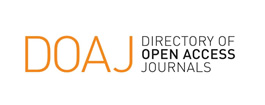Brazil, South Africa and the international recognition of LGBT Rights
Proposals for a comparative research agenda
DOI:
https://doi.org/10.9771/cgd.v7i3.43168Palavras-chave:
LGBT Human Rights, Brazilian Foreign Policy, South African Foreign PolicyResumo
The paper proposes a comparative analysis of the LGBT rights agenda in the foreign policies of Brazil and South Africa. In both countries, authoritarian regimes gave way to democratic orders in the late 1980s / 1990s, which saw the formation of vocal LGBT groups and constitutional recognition of some rights. Both Brazil and South Africa have become leading voices in the global South supporting LGBT rights, in particular at the UN Human Rights Council. Brazil was the first country to propose an international normative text dedicated exclusively to LGBT rights, maintaining a long-term leadership position regarding the promotion of norms in this agenda at the global and regional levels. South Africa's position has been erratic. It was very active in the 90s, but regressive and silent in the 2000s. Since 2011, however, the country has again become a protagonist in relation to sexual issues, as illustrated by a major step in the recent presentation of a resolution on sexual orientation and gender identity. This research agenda is still little explored, especially from a comparative perspective of the political contexts of emerging democratic countries. In the end, the paper proposes six key questions for a comparative analysis of the performance of the two governments in this agenda, taking special account of the growing conservatism in both societies, which in the Brazilian case is marked by the election of President Jair Bolsonaro.Downloads
Downloads
Publicado
Como Citar
Edição
Seção
Licença
Copyright (c) 2021 Cadernos de Gênero e Diversidade

Este trabalho está licenciado sob uma licença Creative Commons Attribution-NonCommercial 4.0 International License.
Política de Acesso e Direitos Autorais
As pessoas autoras mantêm os direitos autorais de suas obras, concedendo à revista o direito de primeira publicação.
A Revista Cadernos de Gênero e Diversidade é de acesso aberto, não cobra taxas de submissão ou publicação.
As pessoas autoras mantêm os direitos autorais de suas obras, concedendo à revista o direito de primeira publicação.
As publicações são licenciadas sob a licença Creative Commons Atribuição (CC BY), que permite compartilhamento e adaptação com atribuição de autoria.
Termo da declaração de acesso aberto
Cadernos de Gênero e Diversidade (CGD) é um periódico de Acesso Aberto, o que significa que todo o conteúdo está disponível gratuitamente, sem custo para usuária/o ou sua instituição. As usuárias e os usuários podem ler, baixar, copiar, distribuir, imprimir, pesquisar ou vincular os textos completos dos artigos, ou usá-los para qualquer outra finalidade legal, sem solicitar permissão prévia da editora ou de autor/a/es, desde que respeitem a licença de uso do Creative Commons utilizada pelo periódico. Esta definição de acesso aberto está de acordo com a Iniciativa de Acesso Aberto de Budapeste (BOAI).













